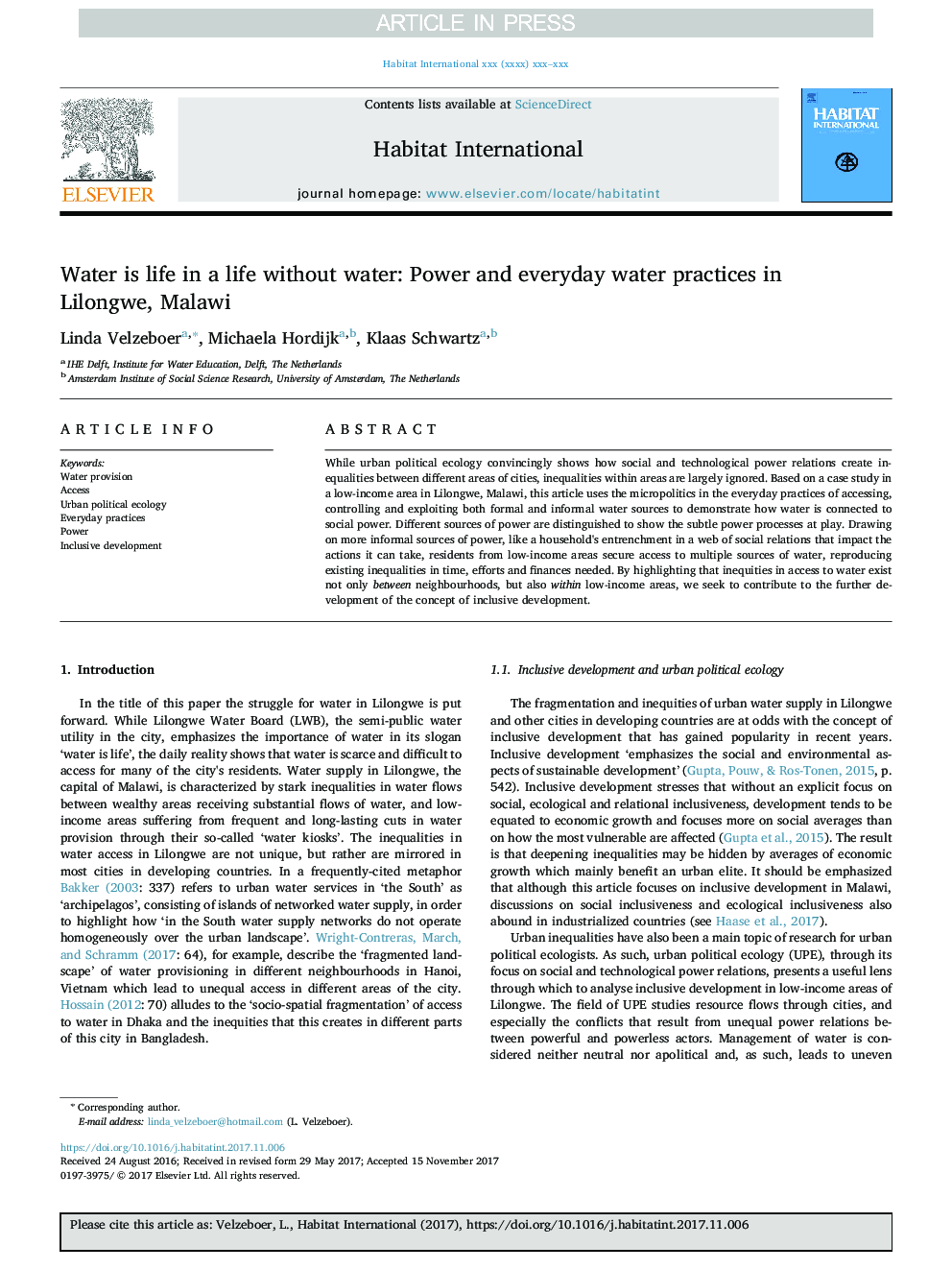| Article ID | Journal | Published Year | Pages | File Type |
|---|---|---|---|---|
| 7455133 | Habitat International | 2018 | 10 Pages |
Abstract
While urban political ecology convincingly shows how social and technological power relations create inequalities between different areas of cities, inequalities within areas are largely ignored. Based on a case study in a low-income area in Lilongwe, Malawi, this article uses the micropolitics in the everyday practices of accessing, controlling and exploiting both formal and informal water sources to demonstrate how water is connected to social power. Different sources of power are distinguished to show the subtle power processes at play. Drawing on more informal sources of power, like a household's entrenchment in a web of social relations that impact the actions it can take, residents from low-income areas secure access to multiple sources of water, reproducing existing inequalities in time, efforts and finances needed. By highlighting that inequities in access to water exist not only between neighbourhoods, but also within low-income areas, we seek to contribute to the further development of the concept of inclusive development.
Related Topics
Social Sciences and Humanities
Social Sciences
Development
Authors
Linda Velzeboer, Michaela Hordijk, Klaas Schwartz,
